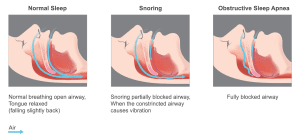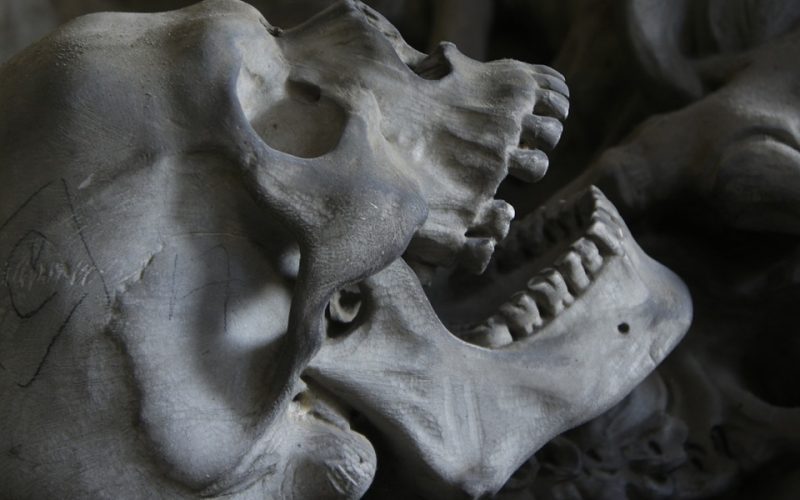Introduction
Sleep apnea is a common sleep disorder characterized by pauses in breathing or shallow breaths during sleep. While many are aware of the potential impact on cardiovascular health, fewer may realize the detrimental effects it can have on bones and teeth. Understanding these consequences is crucial for managing sleep apnea comprehensively. Explore More About (Kidney Health Food And Veggies)
Understanding Sleep Apnea
What is Sleep Apnea?
Sleep apnea occurs when the muscles in the throat relax excessively during sleep, causing the airway to narrow or close temporarily. This obstruction leads to breathing interruptions, which can range from a few seconds to minutes and may occur multiple times throughout the night.
Types of Sleep Apnea
There are three main types of sleep apnea:
1. Obstructive Sleep Apnea (OSA)
This is the most common form, where the throat muscles relax excessively, obstructing the airway.
2. Central Sleep Apnea (CSA)
This occurs when the brain fails to send proper signals to the muscles that control breathing.
3. Complex Sleep Apnea Syndrome
Also known as treatment-emergent central sleep apnea, this condition occurs when someone has both obstructive sleep apnea and central sleep apnea.

The Impact on Bones
Osteoporosis Risk
Research suggests a link between sleep apnea and an increased risk of osteoporosis. During apneic events, oxygen levels drop, leading to oxidative stress and inflammation, which can contribute to bone loss over time.
Fracture Risk
Individuals with untreated sleep apnea may be at a higher risk of fractures due to decreased bone mineral density and compromised bone health. Fractures, particularly in older adults, can have significant implications for overall health and quality of life.
Hormonal Imbalance
Sleep disturbances associated with sleep apnea can disrupt hormone regulation, including hormones involved in bone metabolism such as cortisol and growth hormone. These hormonal imbalances can further exacerbate bone loss and increase fracture risk.

Effects on Dental Health
Bruxism
Bruxism, or teeth grinding, is a common co-occurring condition with sleep apnea. The repeated clenching and grinding of teeth during sleep can lead to dental problems such as worn enamel, tooth sensitivity, and even fractures or loosening of teeth.
Dry Mouth
Many individuals with sleep apnea experience dry mouth due to mouth breathing or the use of continuous positive airway pressure (CPAP) therapy. Chronic dry mouth can contribute to tooth decay, gum disease, and oral infections.
Temporomandibular Joint (TMJ) Disorders
Sleep apnea can also exacerbate TMJ disorders, which affect the jaw joint and surrounding muscles. Symptoms may include jaw pain, clicking or popping sounds, and difficulty opening or closing the mouth. Untreated TMJ disorders can lead to chronic pain and dysfunction.
Managing Sleep Apnea and Its Effects
Diagnosis and Treatment
Early diagnosis and appropriate treatment of sleep apnea are essential for minimizing its impact on bone and dental health. Treatment options may include lifestyle modifications, oral appliances, CPAP therapy, or surgery, depending on the severity and underlying cause of the condition.
Lifestyle Modifications
Maintaining a healthy lifestyle can help mitigate the effects of sleep apnea on bone and dental health. Strategies such as maintaining a healthy weight, regular exercise, avoiding smoking and excessive alcohol consumption, and practicing good sleep hygiene can all contribute to better overall health outcomes.
Dental Interventions
Dental interventions, such as custom mouthguards or oral appliances, can help alleviate symptoms of bruxism and protect teeth from damage. Regular dental check-ups and cleanings are also crucial for monitoring oral health and addressing any issues promptly.

Collaboration with Healthcare Providers
Collaboration between healthcare providers, including sleep specialists, dentists, and primary care physicians, is essential for comprehensive management of sleep apnea and its effects on bone and dental health. A multidisciplinary approach ensures that all aspects of the condition are addressed effectively.
Effects of Sleep Apnea on Bones and Teeth
| Aspect | Effects on Bones | Effects on Dental Health |
|---|---|---|
| Osteoporosis Risk | Increased risk due to bone loss over time | – |
| Fracture Risk | Higher risk due to decreased bone density | – |
| Hormonal Imbalance | Imbalance may exacerbate bone loss | – |
| Bruxism | – | Leads to worn enamel, tooth sensitivity, fractures, etc. |
| Dry Mouth | – | Contributes to tooth decay, gum disease, oral infections |
| TMJ Disorders | – | Exacerbates jaw pain, clicking sounds, dysfunction |
Conclusion
Sleep apnea can have far-reaching consequences beyond just disrupting sleep. Its effects on bone and dental health underscore the importance of comprehensive management and treatment. By addressing sleep apnea promptly and implementing strategies to protect bone and dental health, individuals can mitigate the long-term impacts of this common sleep disorder.












